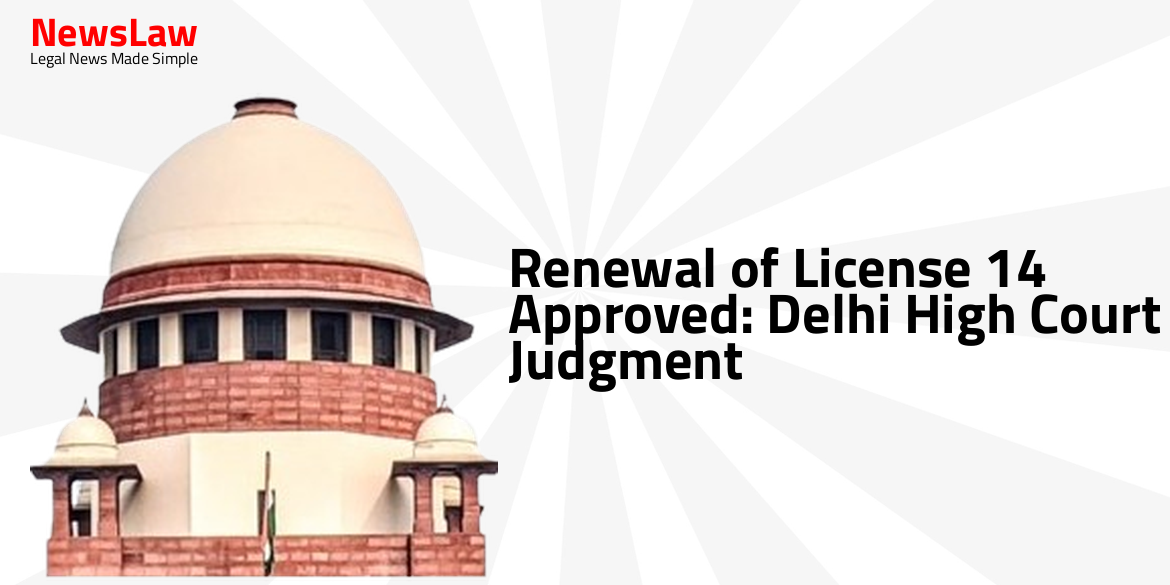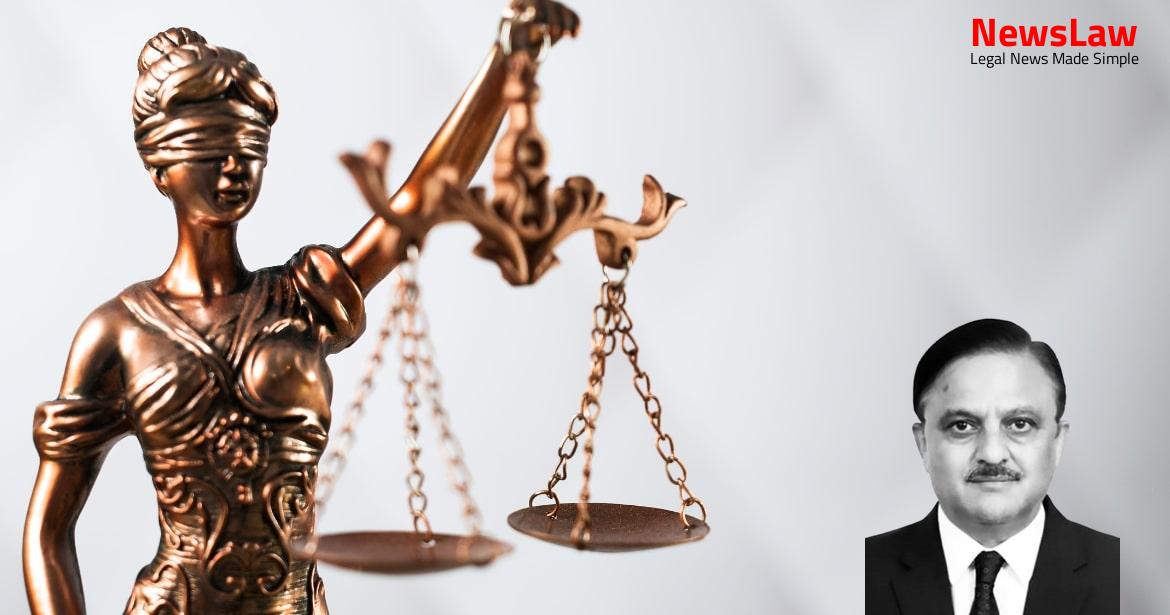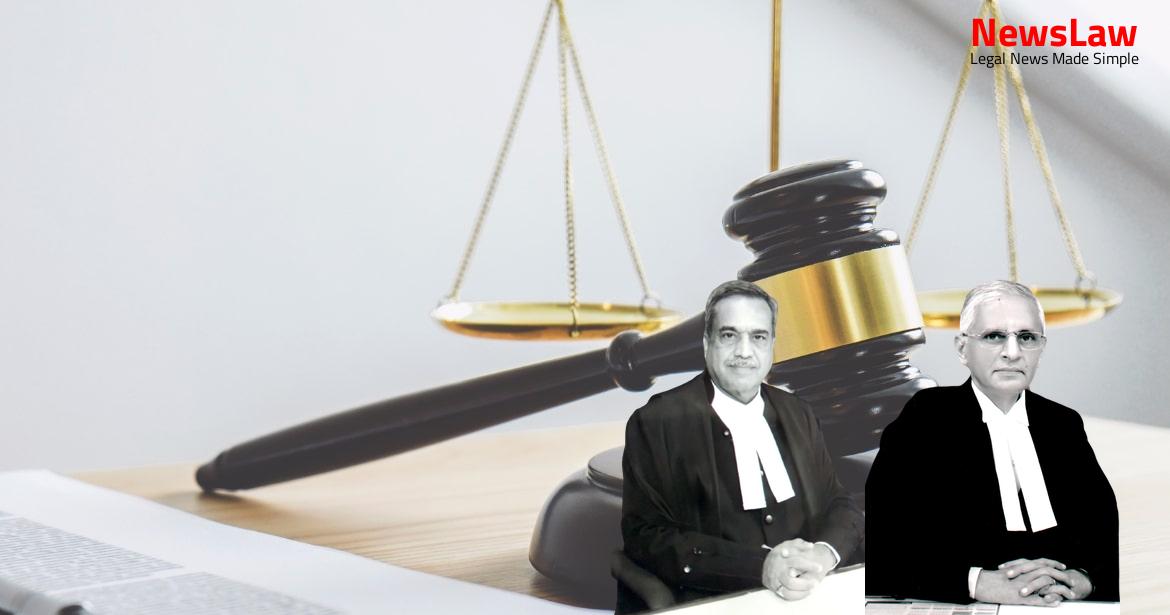In a significant ruling by the Delhi High Court, the renewal of License 14 has been approved, impacting the case involving the Catering Policy 2017. The court’s decision sheds light on the rights and obligations of the parties involved, ensuring clarity on the renewal process for catering units within the railway stations.
Arguments
- The petitioners cannot claim any benefit arising out of the letter dated 21.05.2019.
- The licenses and Catering Policy 2017 include an arbitration clause.
- There is no fundamental right to trade at a particular public space, subject to reasonable restrictions.
- Different treatment has been given to various vendors/hawkers occupying Catering Units within the same railway station regarding extension of their license periods amid Covid-19 pandemic.
Analysis
- The petitioners cannot claim a vested right for perpetual renewal of their license.
- The licenses held are subject to the terms in the respective licenses and Catering Policy 2017.
- Force Majeure clause was implemented on non-operational contracts due to Covid-19 lockdown.
- Individuals from reserved categories do not compete against the general category for catering unit allocation.
- The licenses are subject to contract terms, and no arbitrary power exists to decline renewal.
- The Catering Policy 2017 ensures rights of marginalized minorities and weaker sections are protected.
- Reservation in allotment of minor units for specific sections of society is provided for in the policy.
- Public bodies like the respondent Board cannot arbitrarily decline to renew a license.
- Decisions on license renewal by the Board should have a rational purpose to achieve.
- The reservation issue is sub-judice in the Supreme Court, and licenses have been extended due to Covid-19 lockdown as force majeure.
- The court is called upon to consider the validity of a policy decision only when a challenge is made that such policy decision infringes fundamental rights guaranteed by the Constitution or any other statutory right.
- In executory contracts, there is an element of uncertainty where certain events can make the contract non-viable; the State does not guarantee profits to licensees in such contracts, and there is no warranty against incurring losses.
- Courts interpret laws, involving a creative process, and exceptional cases might warrant a writ for enforcement of an equitable right.
- The doctrine of election estoppel is based on the rule of estoppel – an inherent principle that prevents a person from affirming and disavowing their rights based on their actions, conduct, or silence when required to speak.
- Compulsion to accept contract terms due to unequal bargaining power is considered untenable in the context of contracts entered into willingly during tender processes.
- Judicial review of a policy decision and issuing a mandamus to frame policy differently are distinct actions.
- Contracts between the State and entities post-tender are governed by mutual rights and obligations stipulated in the contracts themselves and relevant contract laws.
- The award of contracts, whether by a State or private entity, is a commercial transaction with its own terms and conditions, viewed as separate from policy decisions.
- Territorial jurisdiction to entertain a writ petition is determined by the petition’s content, regardless of the truthfulness of the claims made in it.
- An executive instruction in the Indian Railways Commercial Manual, specifically paragraph 1744, is cited as the root cause for challenged punitive demands, viewed as potentially violative of Railways Act sections 73 and 79.
- Individual license agreement and Catering Policy 2017 contain an arbitration clause for grievances related to extension or damages.
- Petitioners can invoke arbitration clause for resolution.
- Court finds no merit in the petitions and dismisses them.
- Petitioners are granted 3 months to vacate catering units to make alternative arrangements.
- Transition period will start from the extended license period or the date of the judgment, whichever is later.
- Vacation of units is subject to payment of usual license fee.
- All pending applications are disposed of.
Decision
- The present petitions are considered maintainable.
- Renewal of License 14 is approved.
- The renewal application meets the necessary requirements.
Case Title: MANOJ KUMAR AGARWAL Vs. UNION OF INDIA & ORS. (2024:DHC:4476)
Case Number: W.P.(C)-7498/2024



